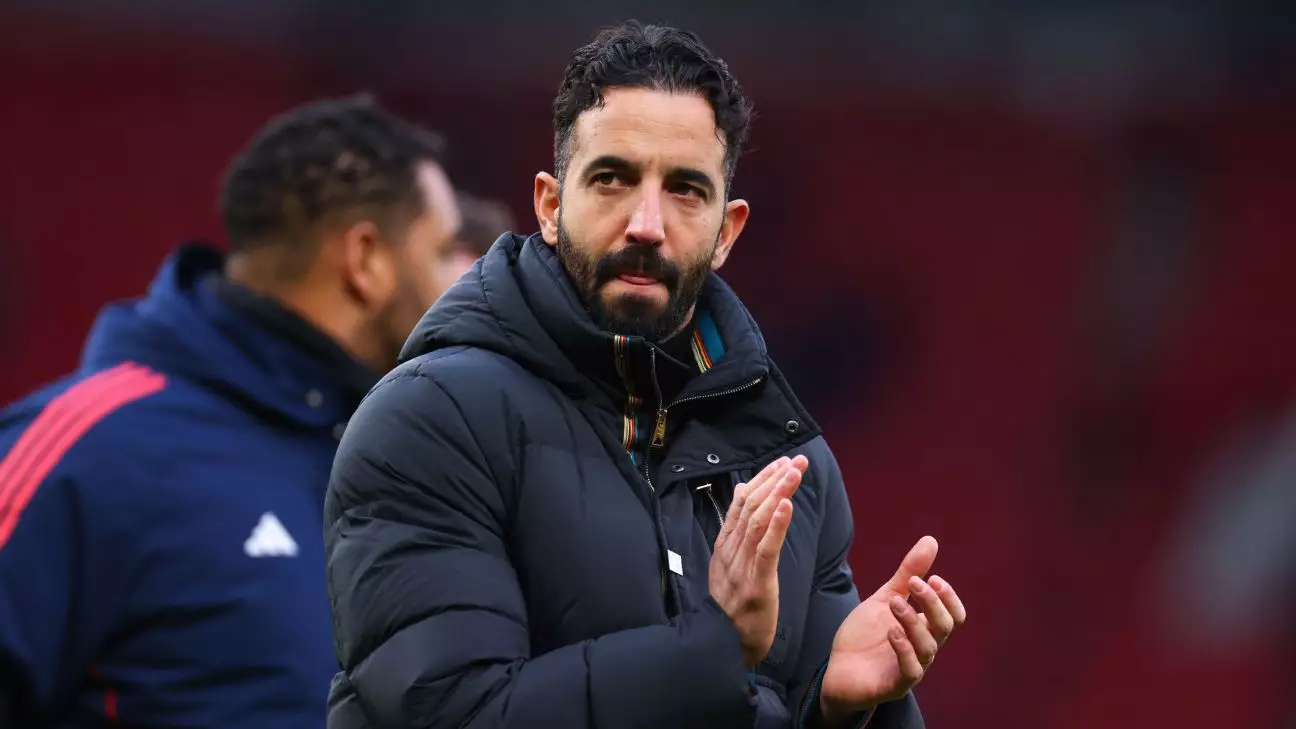The situation at Manchester United has reached a critical juncture, which has been underscored by Ruben Amorim’s recent statements regarding the implications of job cuts and poor performance. Over the summer, the club faced a stark reality, laying off 250 employees as part of a broader cost-reduction strategy implemented by part-owner Sir Jim Ratcliffe. These moves, driven by mounting financial pressures—where the club has reported nearly £300 million in losses over the past three years—serve as a reminder of the intricate relationship between sporting success and economic health. The disheartening reality is that such cuts represent not just numbers but personal stories and livelihoods, illustrating a profound disconnect between the team’s performance and the well-being of its staff.
As Amorim rightly pointed out, the connection between the first team’s results and the fate of the employees cannot be ignored. The players and coaching staff bear a significant degree of responsibility for the malaise that has gripped the team. Their lackluster performance, culminating in a current position of 14th in the Premier League, has exacerbated the club’s financial woes, thwarting ambitions for a return to the lucrative Champions League. Consequently, every missed opportunity translates into a dent in revenue, emphasizing that improvement on the pitch is integral to the broader health of the organization.
Acknowledging Accountability
In this challenging environment, Amorim has been vocal about the need for accountability within the club. His acknowledgment that the first team bears a significant part of the blame is both refreshing and necessary. It marks a departure from the often-impersonal corporate culture that can permeate sports organizations, where decisions can feel disconnected from the realities faced by everyday workers. By highlighting how the football team directly impacts job security, Amorim has emphasized that the path to financial sustainability involves a commitment to performance improvement, collective accountability, and ultimately, success on the field.
In addressing the job losses, Amorim’s comments signal an understanding of the weight of leadership. It is crucial for the players and coaching staff to recognize the human aspect behind the headlines. Those facing job insecurity are supporters of the club just the same, and their emotional investment transcends simply being employees. In articulating this sense of responsibility, Amorim reinforces the idea that football is more than just a game; it is deeply embedded in the fabric of community, making the stakes even higher.
The financial landscape of Manchester United is fraught with challenges, primarily stemming from its inability to capitalize on previous successes. The competitor landscape has drastically shifted, and the calls for increased revenues following job cuts and ticket price hikes hint at deeper systemic issues within the club’s management. The letter sent to fan groups detailing these “difficult choices” further highlights the severity of the situation. When clubs fail to comply with Financial Fair Play (FFP) regulations due to significant losses, the implications can be considerable—not just for the current season but for future viability.
Amorim’s assertion that victories, particularly against pivotal opponents like Tottenham Hotspur, will be critical in mitigating financial strain cannot be overstated. Winning is the antidote to uncertainty; it galvanizes support, fills the stands, and fosters a renewed sense of hope amidst despair. Conversely, continued lack of success not only intensifies financial pressures but also risks alienating the loyal fan base, which could lead to long-lasting ramifications.
There is no quick fix to the mounting challenges faced by Manchester United. However, through Amorim’s determination to instill a mindset focused on responsibility, the club can start refocusing on its foundational principles: teamwork, accountability, and ambition. Short-term victories must translate into long-term strategies aimed at rebuilding the team’s reputation and, crucially, restoring job security for staff.
Ultimately, the club’s resurgence will depend on strengthening connections within the organization, nurturing talent, and rebuilding the trust of its stakeholders—players, employees, and fans alike. This task will require more than tactical adjustments on the field; it necessitates a cultural shift that acknowledges the profound impact of sporting success beyond mere scoreboard results. In navigating this complex landscape, Amorim has positioned himself as not just a coach but a steward of a legacy, recognizing that within every kick of the ball lies a commitment to everyone associated with Manchester United.

